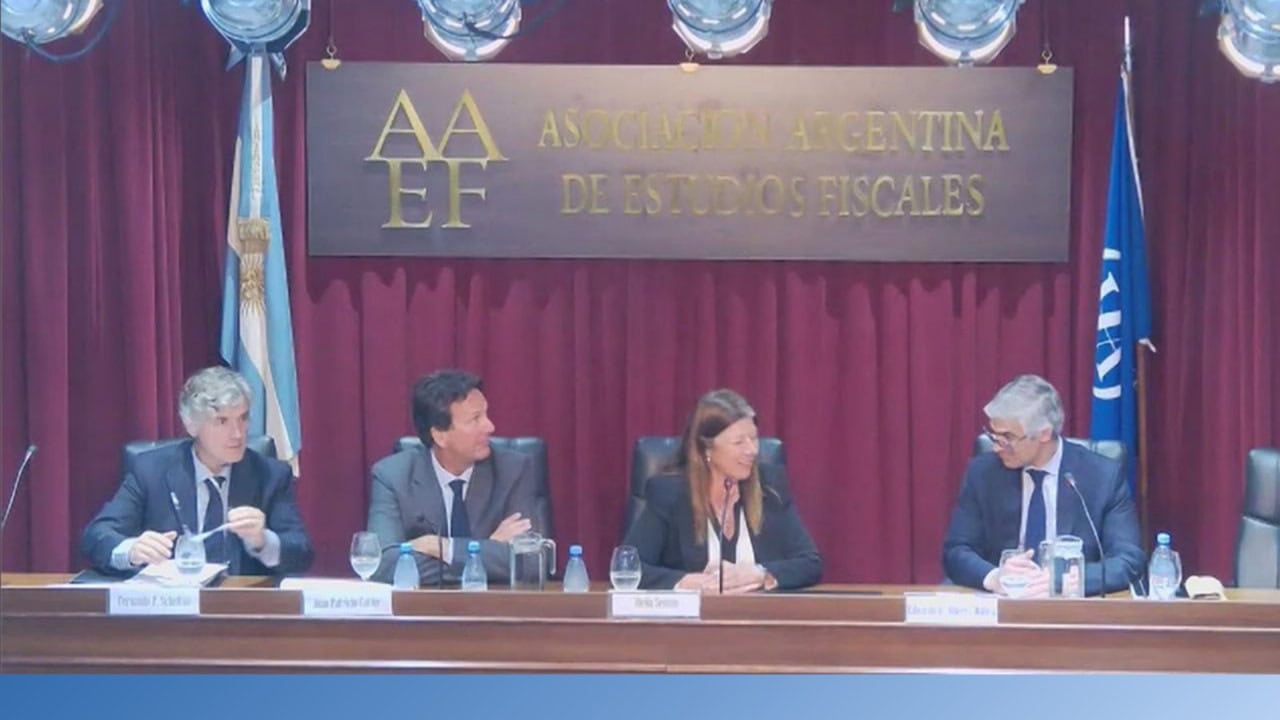
On Monday (September 30, 2024), the Director General of Customs, Dr. Eduardo Mallea, participated in the Customs Taxation Committee of the Argentine Association of Fiscal Studies (AAEF), where he outlined the main initiatives of his administration aimed at optimizing the country’s customs service.
During his presentation, Mallea emphasized that the strategy is based on four fundamental pillars: trade facilitation, control, international openness, and institutional integrity.
The Director highlighted that several actions are already being implemented to strengthen Argentina’s openness to the world. In June, he had the opportunity to attend the World Customs Organization (WCO), where he took part in two sessions: one in the political body and another in the Council, which represents all member Customs Administrations. During this event, he engaged with customs authorities from various countries.
Meetings were held with customs representatives from countries such as Germany, Australia, Israel, and the United Kingdom. In the case of the United States, a potential information exchange on passengers and cargo is being evaluated. To advance on this matter, the Director has held regular meetings with the U.S. Department of Homeland Security. Additionally, he has met with representatives from the Canadian Chamber of Commerce and the Chinese Embassy to discuss other topics of mutual interest.
He also recently attended the annual COMAEP meeting in Valencia, Spain, where issues were discussed with customs authorities from Latin America, Spain, and Portugal. This series of meetings reflects a clear intention to promote international trade—an effort that has been well received. According to the Director, Argentina had previously only attended WCO tariff classification meetings virtually.
Regarding trade facilitation and control, the Director noted the reactivation of an internal customs committee that includes representatives from all sub-directorates, such as technical-legal, regional, metropolitan, and control divisions. The objective of this committee is to unify both legal and operational criteria.
Among the measures adopted, the prior control requirement for horse exports has been eliminated. A new regulation is also being evaluated to address discrepancies in the tariff classification between MERCOSUR certificates of origin and Argentine importers.
A regulation has been established for maritime transshipments abroad, seeking to unify standards. Steps are also being taken toward the implementation of artificial intelligence, beginning with an upcoming contract with SENASA for fish classification. This approach aims to enhance risk management, a growing trend globally. “The intention is not to replace customs officers, but to provide them with tools to improve their control work,” affirmed the Director.
In relation to reference export values, all those related to duty-free goods have been eliminated. Substantial modifications are also expected in reference values and tax stamps. “Argentina cannot have non-tariff barriers,” he emphasized.
Regarding classification criteria within the framework of customs infringement proceedings, the AFIP publishes this information on its website, while maintaining the required confidentiality.
The Director announced upcoming regulatory changes to facilitate the free circulation of artworks and to unify the process for temporary exports. Greater benefits will also be offered to Authorized Economic Operators (AEO), such as reducing the required guarantees. He stressed the importance of the AEO program and the need to increase participation. “There are very few AEOs in the country,” he said. He also mentioned that work is underway with the new Director of Customs Process Reengineering, Horacio Menem, the Deputy Director Lic. María del Carmen Baratta, and Javier Ferrante, Deputy Director of Customs Control.
Additionally, upcoming international agreements on the AEO program were announced, with particular emphasis on cooperation with Israel.
A key issue we want to address is integrity, the Director continued. To that end, Marcos Russo has been appointed to the General Directorate of Customs (DGA). “With him, we are analyzing several relevant matters.”
Furthermore, discussions have begun with the WCO to implement new tools that promote integrity. The DGA is currently collaborating with the Maritime Anti-Corruption Network, which was established in 2011 with a small number of companies and has since grown to over 200. This network has had a positive experience with SENASA.
Reporting channels are also being reviewed to ensure their effectiveness. It is essential for stakeholders to know that there is a channel managed by a third party, allowing them to file complaints securely.
The Director also addressed the issue of money laundering. An expert from AFIP’s General Tax Directorate (DGI) has been incorporated to strengthen customs capabilities in this area.
At the same time, the Customs Office is working to reduce the processing time of administrative cases. As part of this effort, the digitization of appeals related to customs values has begun, and the next step will be to digitize refund claims.
The General Directorate of Customs is also focusing on training officials across various areas.
Mallea underscored the importance of the tax amnesty, one of the provisions of Law No. 27,743 on “Relevant and Emergency Tax Measures,” which allows the regularization of customs, tax, and social security debts overdue as of March 31, 2024. He also highlighted the reactivation of the customs dialogue roundtable to foster greater interaction between the public and private sectors.
With these statements, he concluded his presentation titled "Challenges of the Argentine Customs Service: Management Plan and Objectives" within the framework of the AAEF. He was joined by Drs. Ofelia Seoane, Juan Patricio Cotter, Fernando P. Schettini, and a distinguished academic audience.
